SPILL PREVENTION (SPCC)
The purpose of the Spill Prevention, Control, and Countermeasure (SPCC) rule is to help facilities prevent a discharge of oil into navigable waters or adjoining shorelines. This rule is part of the U.S. Environmental Protection Agency’s oil spill prevention program and was published under the authority of Section 311(j)(1)(C) of the Federal Water Pollution Control Act (Clean Water Act) in 1974. The rule may be found at Title 40, Code of Federal Regulations, Part 112.
A facility is covered by the SPCC rule if it has an aggregate aboveground oil storage capacity greater than 1,320 U.S. gallons or a completely buried storage capacity greater than 42,000 U.S. gallons and there is a reasonable expectation of an oil discharge into or upon navigable waters of the U.S. or adjoining shorelines.
Oil of any type and in any form is covered, including, but not limited to: petroleum; fuel oil; sludge; oil refuse; oil mixed with wastes other than dredged spoil; fats, oils or greases of animal, fish, or marine mammal origin; vegetable oils, including oil from seeds, nuts, fruits, or kernels; and other oils and greases, including synthetic oils and mineral oils.
A facility that stores, processes, refines, uses or consumes oil and is non-transportation-related is potentially subject to the SPCC rule. Operations that are intended to move oil from one location to another, i.e. transportation-related, are not included. Here are some examples of covered facilities and operations:
- Onshore and offshore oil well drilling facilities;
- Onshore and offshore oil production facilities (including separators and storage facilities);
- Oil refining or storage facilities;
- Industrial, commercial, agricultural, or public facilities using or storing oil;
- Certain waste treatment facilities;
- Loading racks, transfer hoses, loading arms, and other equipment
- Vehicles (e.g. tank trucks) and railroad cars used to transport oil exclusively within the confines of a facility;
- Pipeline systems used to transport oil exclusively within the confines of a facility.

A facility that meets the criteria described above must comply with the SPCC rule by preventing oil spills and developing and implementing an SPCC Plan.
The owner or operator of the facility must develop and implement an SPCC Plan that describes oil handling operations, spill prevention practices, discharge or drainage controls, and the personnel, equipment and resources at the facility that are used to prevent oil spills from reaching navigable waters or adjoining shorelines. Although each SPCC Plan is unique to the facility, there are certain elements that must be described in every Plan including:
- Operating procedures at the facility to prevent oil spills;
- Control measures (such as secondary containment) installed to prevent oil spills from entering navigable waters or adjoining shorelines;
- Countermeasures to contain, cleanup, and mitigate the effects of an oil spill that has impacted navigable waters or adjoining shorelines.
Spill Prevention
Ecotec can prepare and implement a Spill Prevention, Control and Countermeasure (SPCC) plan as part of facility compliance management. We have experience in preparation, oversight, and certification of SPCC plans. Significant environmental compliance penalties may be assessed for failure to prepare or follow an SPCC plan and for discharges that result from failure to follow the requirements of the regulation.
SPCC Experience
Bottini Fuel Company, Inc., April 2010 to Present
Professional engineering experience includes preparation, oversight, and certification of nine Spill Prevention, Control, and Countermeasure (SPCC) Plans prepared in conjunction with EnviroClean Services, LLC for Bottini Fuel Company, Inc. at separate petroleum bulk storage facilities. The facilities are located in the state of New York. Each plan is prepared in accordance with professional engineering practices, including consideration of applicable industry standards, and with the requirements of the SPCC rules (40 CFR 112).
Chesapeake Energy Corporation, December 2009 to 2014
Professional engineering experience includes preparation, oversight, and certification of over 582 Spill Prevention, Control, and Countermeasure (SPCC) Plans prepared in conjunction with EnviroClean Services, LLC for Chesapeake Energy Corporation at 411 separate petroleum bulk storage facilities. The facilities are located in the states of Kentucky, Ohio, Pennsylvania, Tennessee, West Virginia, and Wyoming. Each plan is prepared in accordance with professional engineering practices, including consideration of applicable industry standards, and with the requirements of the SPCC rules (40 CFR 112).
Royal Carting Service Company, September 2010
Professional engineering experience includes preparation, oversight, and certification of a Spill Prevention, Control, and Countermeasure (SPCC) Plan prepared in conjunction with EnviroClean Services, LLC for Royal Carting Service Company at a petroleum bulk storage facility located in the state of New York. The plan was prepared in accordance with professional engineering practices, including consideration of applicable industry standards, and with the requirements of the SPCC rules (40 CFR 112).
